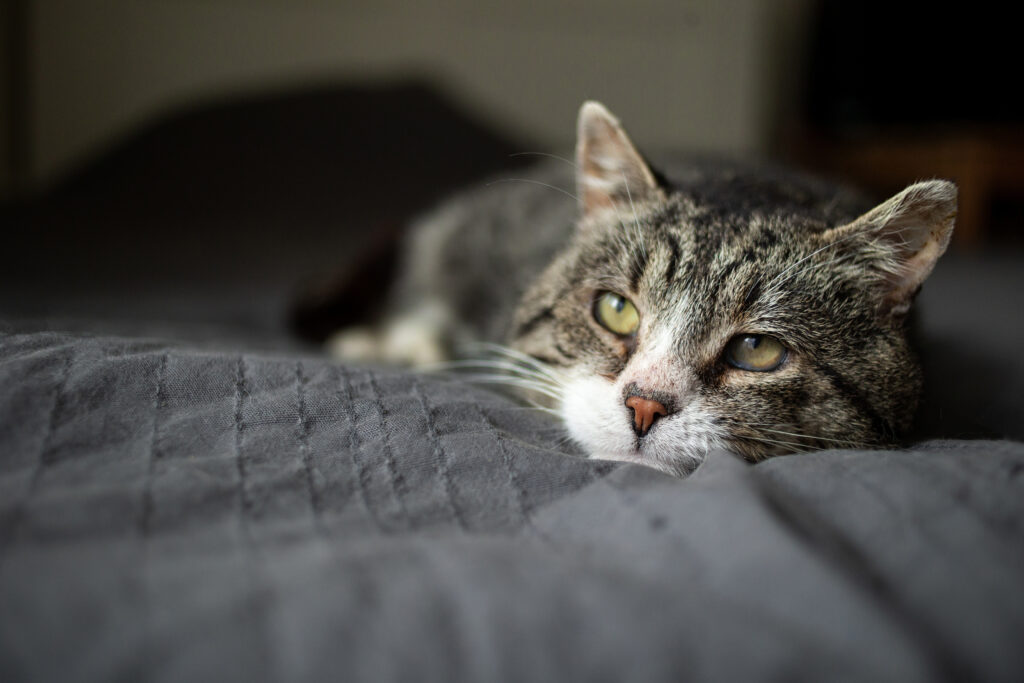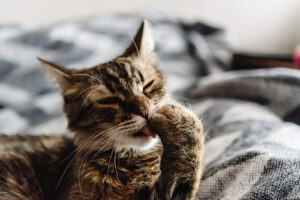Today, we’re diving into an important topic: can cats get parvo? This is a question we often hear from our community in Chino Valley. Throughout this blog, we’ll explore the details of this disease, how it affects cats, and what steps you can take to protect your beloved pets. If you find yourself with more questions or need advice tailored to your pet, please give us a call at (928) 636-4382. Our team is here to support you and your cat’s health.
Understanding Parvo in Cats
Parvovirus is a term that often brings to mind a serious illness in dogs, particularly puppies. However, cats can also be affected by a form of this virus, known as feline panleukopenia virus (FPV), which is sometimes called feline parvo. FPV is a highly contagious and life-threatening viral disease in the feline world. It’s important to understand how it spreads and the signs to watch for.
How FPV Spreads
FPV is transmitted primarily through direct contact with an infected cat’s bodily fluids, feces, or even fleas that have fed on an infected cat. The virus can also live in the environment for a long time and can be carried on a person’s clothing and shoes, making it easy to transmit unknowingly.
Symptoms of FPV in Cats
The symptoms of FPV can vary but often include a high fever, lethargy, loss of appetite, and gastrointestinal symptoms like vomiting and diarrhea. In severe cases, it can lead to dehydration and a weakened immune system, and it can be fatal, especially in young kittens.
Preventing FPV in Cats
Prevention is key when it comes to FPV. Thankfully, there are effective vaccines available that can protect your cat from this dangerous virus.
Keeping Your Cat Vaccinated
Vaccinating your cat against FPV is one of the most effective ways to prevent this illness. Kittens typically receive their first vaccine between 6-8 weeks of age, followed by booster shots. It’s essential to follow your cat’s vaccination schedule as recommended by your veterinarian.
Maintaining a Clean Environment
Maintaining a clean environment is also important. Regular cleaning and disinfection can help reduce the risk of FPV, especially in homes with multiple cats. Washing your hands and changing clothes after interacting with other cats can also prevent the spread of the virus.
Diagnosing and Treating FPV in Cats
If you suspect your cat has FPV, you need to seek veterinary care immediately. Early diagnosis and treatment can improve your pet’s chances of recovery.
Diagnosis of FPV is typically based on the symptoms, medical history, and laboratory tests. Your veterinarian may perform blood tests to check for the virus and assess your cat’s overall health.
Treatment for FPV is primarily supportive and aims to manage symptoms and prevent secondary infections. This may include hospitalization, intravenous fluids, and medications for your pet. Unfortunately, there is no direct cure for the virus, which is why prevention and early intervention are so critical.
Long-Term Care and Management
Recovering from FPV can take time, and some cats may experience long-term effects. They need a comfortable, stress-free environment and proper nutrition to support their recovery. Regular follow-up visits with your veterinarian are also needed to monitor your cat’s recovery and overall health. This may include additional blood tests and adjustments to their care plan.
Supporting Your Cat’s Immune System
After their recovery, your cat needs proper support for their immune system. This can include a balanced diet, regular exercise, and avoiding/reducing stressful situations. Your vet can provide specific recommendations based on your cat’s needs.
As a pet owner, understanding the risks and prevention of FPV is key to keeping your cat healthy and safe. If you have any concerns or questions about parvo in cats, or if you need to schedule a vaccination appointment, please call us at Chino Valley Animal Hospital at (928) 636-4382. Our team is here to provide you with the support and care your cat needs.





